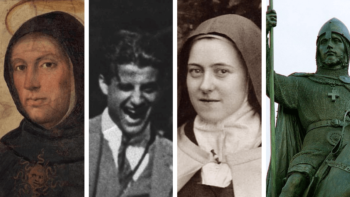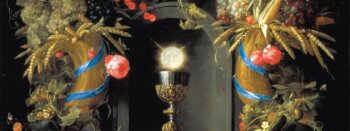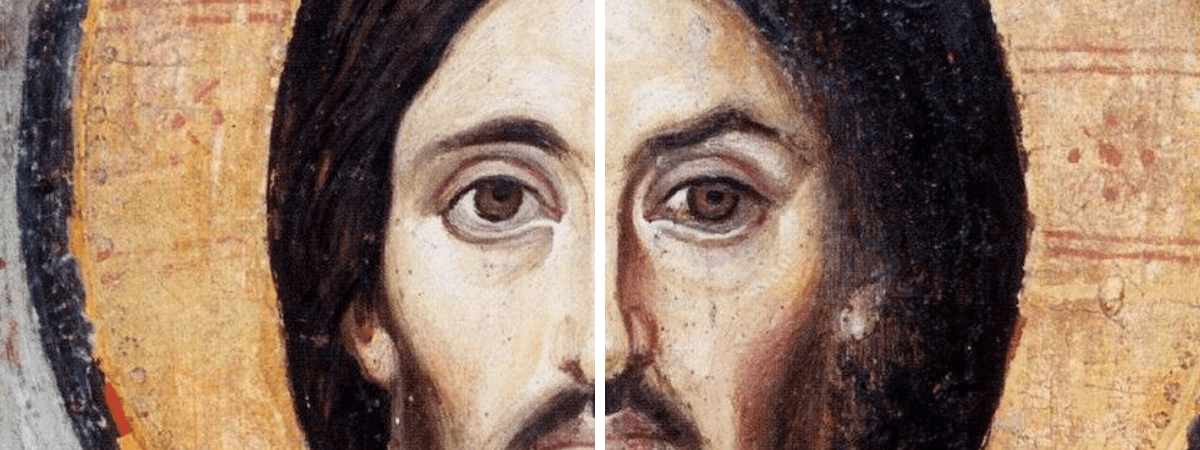
When we contemplate the two natures of Christ, the Divine and the human, we stand at the threshold of one of the most profound mysteries imaginable. That Jesus was both God and man, perfect Godhood and also perfect manhood, is a teaching of our Faith known as the “hypostatic union.”
The word hypostatic comes from the Greek “hypóstasis.” In ancient Greek, it meant something similar to the word “person” or “personal.” The doctrine of the hypostatic union teaches that the two natures of Jesus—Divine and human—are united in the one person of Christ.
A remarkable part of this mystery is that His human and Divine natures did not mix in any way. He had a human body and soul that were complete, and distinct, from His Divinity. Yet both natures were united (not combined) in His Divine person.
How is this possible?
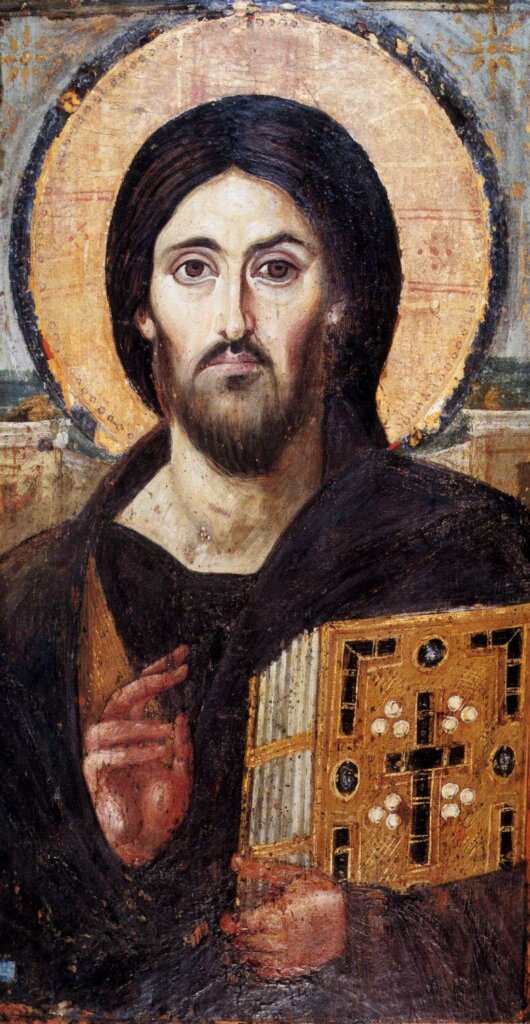
The “What” and the “Who”
Our “nature” is what we are. We are human beings. We are not pure spirit, as angels are; but we are rational creatures, unlike the animals. We can think, read, work, pray, love, and so much more.
Our “person” is who we are. We have a unique identity. The way we live out our natures differs from one person to the next.
Within Jesus were two “Whats” (Divine and human) and one “Who” (the Divine Person of Christ).
He lived both his human and His Divine natures, as one Divine person at all times, with each nature retaining its own distinct properties.
In His Divine nature, He was God from before time began. Uncreated, without beginning or end. There was never a time when Christ “became” God. He always “was” God and always was.
In the beginning was the Word, and the Word was with God, and the Word was God. He was in the beginning with God…
John 1:1-2
In His human nature, conceived by the power of the Holy Spirit, He was born of the Virgin Mary and became man. Yet He did not relinquish any of His Divine attributes. He possessed them all continuously.
Two Faculties of Knowledge
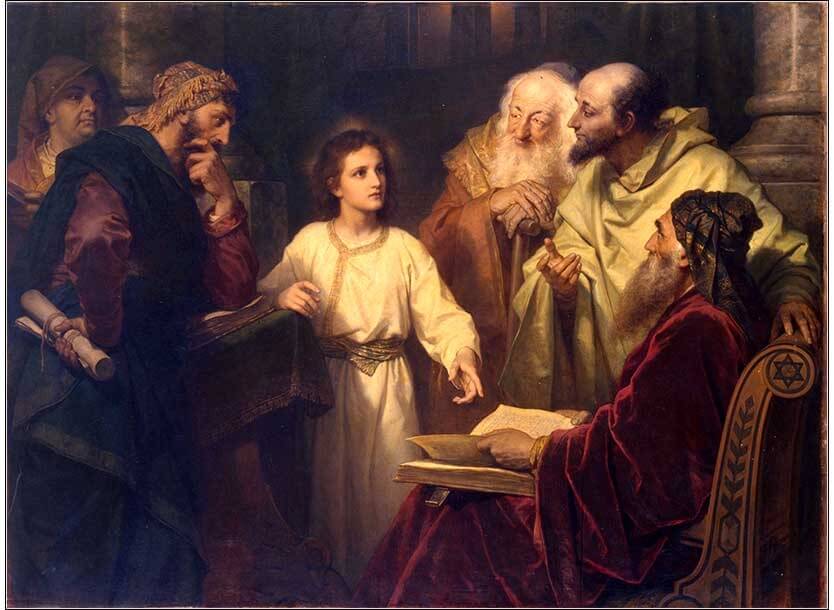
Jesus had two faculties of knowledge. In His Divine nature, He knew all things. He was God omniscient. As the Author of All Things, He did not need instruction.
In His human nature, Jesus could grow and learn, because it is not in human nature to know all things from the beginning.
After Jesus was found in the Temple by Mary and Joseph, and returned home with them, St. Luke writes: “And Jesus grew in wisdom and stature, and in favor with God and man” (Luke 2:52).
How can we understand this? Here is an excellent clarification from the Navarre Bible commentaries:
As far as human nature was concerned, Jesus matured like anyone else. His growth in wisdom should be seen as referring to experiential knowledge—knowledge acquired by his mind from sense experience and general experience of life. It can also be taken as referring to the external expression of his wisdom; in this sense everything he did was done perfectly, in keeping with whatever age he was at the time.
As man Jesus had three kinds of knowledge: 1. The knowledge of the blessed (vision of the divine essence) by virtue of the hypostatic union…This knowledge did not require any increase. 2. Infused knowledge, which perfected his knowledge and which meant that he knew everything, even hidden things; thus he was able to read men’s hearts. Here again his knowledge was complete; it could not grow. 3. Acquired knowledge: he acquired new knowledge through sense experience and reflection; logically, this knowledge increased as time went by.
As far as grace, in the strict sense of the word, was concerned, Jesus could not grow. From the first instant of his conception he possessed grace in all its fullness because he was true God by virtue of the hypostatic union…
However, we can speak of his growing in grace in the sense of the effects of grace. In the last analysis, this matter is one of the mysteries of our faith, which our minds cannot fully grasp.
The Navarre Bible Commentaries
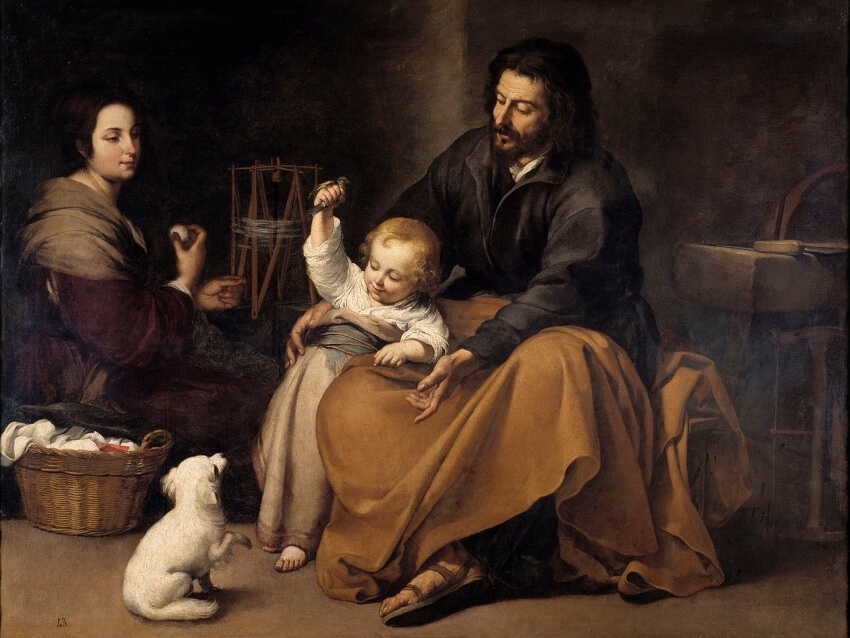
A Perfect and Sinless Human Nature
An important part of understanding the hypostatic union is to know that despite Christ’s human nature, He did not have a “sinful” nature like ours. He never committed sin, though the Scriptures tell us that He was “tempted as we are” (Hebrews 4:15). (He was only tempted externally, however, whereas many of our temptations come from within us—from our fallen nature.)
Perhaps the most profound example relayed to us in the Gospels is that of the devil tempting Jesus in the desert.
Scripture teaches us that Christ’s human nature was subject to temptation. He did not yield to temptation, and never sinned, but in His earthly life, He knew the full range of human experiences, including the most difficult ones. It is precisely because He is both fully and perfectly man that He can help us in times of trial and temptation.

Summarizing the Doctrine
The Chalcedonian Creed summarizes what we believe about the person of Christ and His Incarnation. The Church Fathers wrote it at the Council of Chalcedon, in 451 A.D., so that we could have these eternal truths forever.
These points are the summary of what we believe about the two natures of Christ through that Creed:
- He has two natures: God and man.
- Each nature is full and complete, so He is fully God and fully man.
- Each nature remains distinct and separate from the other.
- Jesus Christ is only one person within whom the two natures are united but not combined. [Italicized text mine]
- Whatever is true of only one nature of Christ is also necessarily true of the Person of Christ.
Why It Matters
Even though we are human, we will never be content with what is merely human. That which is simply human has failed us miserably. Look no further than your own mirror to be convinced of this truth. God made us to be satisfied with nothing less than Himself.
In His great generosity, He condescended from His glory to be born into this world of sorrow. He joined Himself with our wounded, broken, and sinful natures as no other “god” has ever done. He became truly man, while remaining truly God, to be both the offering for our sins and our merciful and faithful High Priest.
Only in our Christian faith do we find a God who became man for us, to give us an example of how to live, and simultaneously help satisfy the deepest longings of the human soul. While being consubstantial with the Father, He has also shared in our substance—in His human nature. In this substance He lived our greatest joys and our deepest sorrows. He made the personal union of God and man personal for us.
What This Means for Us
Because He is God, He is the only Savior of the World. He is Omnipotent, Sovereign, and Forever Victorious. Through His Passion, He made a way for us to share in His victory. We can give ourselves entirely to His care, entrusting every prayer and longing to Him. A heavenly inheritance and union with Him await us in His eternal kingdom.
Because He is man, He has lived our struggles, known our fears, and experienced life as we have. He is not a distant, remote, and far-away God. He is the God-Man, who understands our human weakness and presents to us the portrait of a high priest who sympathizes, empathizes, and is intimately connected to each of us.
He rejoices in our joys, and accompanies us in our sorrows while we live our earthly lives. He knows the human heart, having created each of us and lived our humanity. He understands your soul and mine in a uniquely personal way—a way no one else ever will.
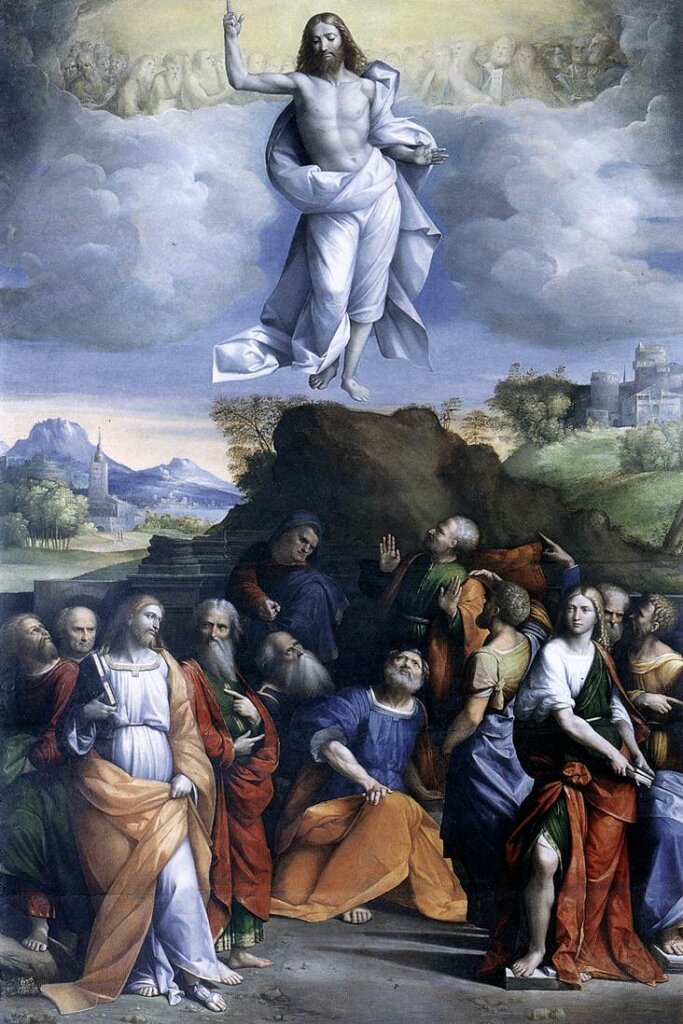
How Should It Affect Our Faith?
Knowing the truths of Christ’s human and Divine natures is to better know Him. It gives us a richer understanding of the Incarnation and the humanity of Christ. Our faith is strengthened by a better understanding of who He is.
Through that knowledge, we can continue to marvel at all He did for us, in both His deity and His humanity. To understand the twofold nature of Christ is to better love and follow Him in holy confidence and gratitude.
We serve, worship, and follow a remarkable God of unparalleled perfection and love. No one human person can fulfill our deepest longings, and satisfy the yearnings of the human heart, but the God-Made-Man can, and does.
If you are interested in learning more about Jesus and His life, you will benefit from the digital series The Life of Christ. Sign up and take the journey with us.

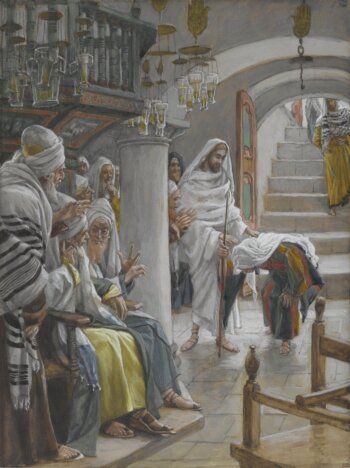
![St. Justin Martyr Describes The Catholic Mass in 155 A.D. [Video]](https://www.goodcatholic.com/wp-content/uploads/2021/01/Screen-Shot-2021-09-20-at-4.38.13-PM-350x197.png)
